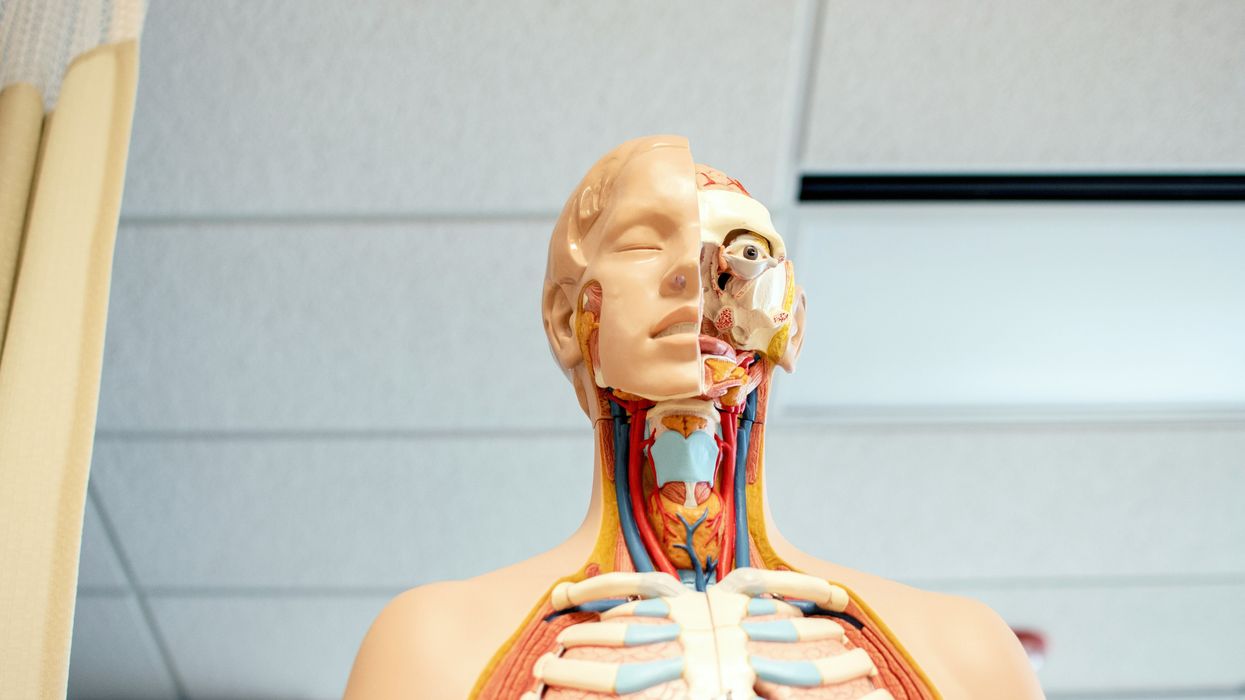The existence of Homo sapiens has been traced back 350,000 years to the late Pleistocene Epoch.
Our current last stop in human evolution is the subspecies Homo sapiens sapiens—modern humans—which would dominate the Holocene Epoch—which began 11,700 years ago—as the last surviving subspecies of Homo sapiens.
Coming before us in the development of modern humans were:
- Dryopithecus – middle–late Miocene Epoch, 12.5 to 11.1 million years ago
- Ramapithecus – late Miocene Epoch, 12.5 to 5.3 million years ago
- Australopithecus – Pliocene and Pleistocene Epochs, 4.4 to 1.4 million years ago
- Homo habilis – early Pleistocene Epoch, 2.4 to 1.4 million years ago
- Homo erectus – middle–late Pleistocene Epoch, 6 million to 100,000 years ago
- Homo neanderthalensis – late Pleistocene Epoch, 400,000 to 40,000 years ago
- Homo sapiens – late Pleistocene and Holocene Epochs, 350,000 years ago to modern day
Homo sapiens sapiens emerged in Africa sometime between 200,000–160,000 years ago and would eventually migrate to every corner of the globe with the exception of Antarctica.
With our development came adaptations to the environment—like height and skin color—and mutations—like blue eyes and red hair.
Despite being the winners of the Homo sapiens evolutionary lottery, modern humans are still discovering things about our bodies.
Reddit user Immediate_Hair_3393 asked:
"Doctors of Reddit, what do we *not* know about the human body?
Half Right
"I had a lecturer at medical school say 'half of medicine is made up, we just don't know which half'."
~ aloadofguff
Allergies
"Allergies, specifically food allergies And why do adults develop them after never reacting to them before?"
~ saturnbunny1
"It's really frusteating to deal with a new allergy since it can take a while to figure it out. It was safe to eat before, so you don't even consider it."
"I always liked pistachios as a kid since they were a holiday nut to me (my mom would decorate the table runner with nuts and fruits every Christmas). I'd even suck on the salty shells and spit them out in a pile."
"Then one year as an adult visiting for Christmas dinner, my throat started to close a short while after eating one. Scared me really bad, but Benadryl helped after a few minutes."
"The only new thing I'd eaten that dinner was this hibiscus tea/lemonade thing my sister had brought (she was experimenting with healthy recipes), so I thought for sure it must be that. I dumped my drink out and just had water."
"A couple minutes later, I had another pistachio and had to go through the whole thing again."
"As a side note, the next year's Easter I found out my stepmom's green Jello salad was a pistachio Jello after I had a reaction to eating it."
"That also took a while to figure out because why would there be nuts in a jello salad? I thought it was one of the fruits instead."
~ Just-Me-Myself-And-I
"That's crazy because this is so similar to me. I randomly had an allergic reaction to pistachios at 15 after eating them my whole life up until that point.
"Went to the doctor to get my allergies tested and sure enough I was now allergic to pistachios. Doctor then asked, 'But not cashews? Usually those go together'."
"I was eating cashews a few years later and felt my tongue and throat starting to swell so now I'm allergic to both."
~ ac130sound
"Allergies are a huge evolutionary hiccup that i really wish could be solved. Litterally your body defending itself against what it thinks is a deadly poison but is something as harmless as a peanut."
"People just one day wake up with this glitch and now your body treats cats like they're cyanide."
"There is a treatment for allergies that isn't immunotherapy called biologics that specifically target mast cells that produce histamine essentially subdueing your allergic reaction from the source."
~ PronetoTilting
Immunology
"Ask any medical professional about immunology, so little known, so complex."
~ stuntedmonk
"I have my MS in Immunology, the higher-level Immunology courses are absolutely ridiculous and a lot of 'we don’t yet know why this happens…'."
~ AkuraPiety
"We keep finding new immune cells to this day. Not like enormous classes, but definitely different subtypes. The immune system is wild."
~ wookiewookiewhat
"This is why it’s hilarious that antivaxers think they know what they’re talking about at all."
~ smuaccount-1
Fibroids
"Apparently we know next to nothing about fibroids, which like 75% of women have at some point in their lives. That's great, considering that the largest one removed was 100 lbs, so not exactly a minor issue."
"There are theories about different hormones and what things put you at higher risk, but aside from having surgery to have your existing ones removed, there is basically no information on what you can to do prevent them from coming back."
~ Regular-Training-678
Vaults
"There are organelles called vaults in human cells and in most other eukaryotic species. They are made of 78 copies of a protein called the major vault protein, totalling about three times the size of a ribosome, and larger than most viruses."
"Their function is not totally understood, but it's probably something to do with the nucleus, though analogs of the genes for vaults even appear in bacteria. As they are found in such a wide variety of species, life on Earth must have started making vaults early in its history."
"The similarity of the genes encoding vault proteins across diverse species would presumably indicate the importance of vaults for viable life, but experiments haven't shown a great deal of harm done to lab animals that had their vault genes knocked out."
"Even stranger, several of the species used in laboratories as model organisms naturally lack vaults. The use of these organisms long predates the discovery of vaults in 1986, with some going back over a century."
~ Gecko99
Schizophrenia
"One of the few ABSOLUTES in medical science is that nobody born blind has ever developed schizophrenia."
~ beboleche
"This fact is so godamn interesting because to me that has to mean that schizophrenia is intrinsically linked with vision specifically, because even though people with schizophrenia have visual and auditory hallucinations, born deaf people have been known to develop it."
"So what makes being able to see such an important factor in getting it‽‽"
"I need the smart people to figure it out STAT."
~ houseofreturn
Benzodiazepines
"We don’t know what is supposed to naturally bind to the area that benzodiazepines work at."
"Benzodiazepines, BZD, are medications like Xanax and Valium. They produce anti-anxiety effects. And they have a very distinct chemical shape to fit into the BZD site in a group of five proteins."
"But we don’t know what is supposed to go there."
"Many medications are analogs of naturally binding molecules that we copy and then use to create an effect. The BZD site is for something, we just don’t know what."
~ Mrzahn
Nutrition
"Diet generally, because it is almost impossible to study effectively and ethically. For example, an experiment looking at the long term impact of eating a specific food is unreliable at best."
"People are naturally not good at sticking to a specific diet. Even if someone does stick to the diet, it is hard to prove they did. People are not honest about what they have eaten."
"People eat lots of different things, making it almost impossible to prove causation rather than correlation. Funding also generally comes from the food industry introducing potential bias."
"So how can an experiment be designed?"
"As an example of how little we truly understand, the single largest and most detailed experiment into the harmful impact of saturated fat will never be repeated for ethical reasons. They fed a mental institution specific and controlled diets."
"The results demonstrated people who ate more saturated fat had higher cholesterol....and better health outcomes. When the experiment didn't demonstrate what they had expected, it wasn't fully published, until the research was uncovered and republished decades later."
"When even one of our most basic assumptions 'Saturated fat is bad for health' may not even hold true....how much do we truly understand?"
~ Bonsai_Monkey_UK
Labor
"OBGYN here: we still don’t know exactly what makes labor start."
"We know all about the mechanics and physiology, but we don’t know what makes the average uterus say it’s 'go time'."
~ _mcr
Microbiome
"Not MD, but PhD, and right now we are working on the connection between our intestinal microbiome and neuropsychiatric disease and brain aging."
"For instance, people with inflammatory bowel disease are more likely to develop dementia and experience co-morbid anxiety and depression, but we don't know why."
~ uncle-chewie
Dreaming
"I'm a sleep specialist. While we do have some good theories about some of the functions of REM as far as how it affects the brain and health, we still don't fully understand the purpose of dreaming."
"Like, why do we dream at all and why do dreams have a narrative instead of random incomprehensible imagery?"
"Unfortunately, this is unlikely to ever be solved."
~ 3Magic_Beans
Anesthesia
"I’m an anesthesiologist. We still don’t really know why inhaled volatile anesthetics like sevoflurane, the principle anesthetic agent used to maintain general anesthesia, work."
"We kind of have an idea of maybe how it happens, but really, we don’t know."
"It’s commonly said in my field that whoever figures this out will win the next Nobel prize in medicine."
~ SignificanceMost8826
Itching
"I’m a dermatologist. We don’t know what exactly causes itching, like the molecular pathways for it."
"That’s why it can be so hard to find a good treatment when a patient comes in for itchy skin."
~ criduchat1-
Survival
"Had a pathologist tell me that the interesting part of his job wasn't finding out how someone died, it was seeing everything that can be wrong with someone, so many life threatening or life altering, horrible things that a person can have going on and still be alive."
"Good friend died of pneumonia (he was too busy at work, couldn't afford to take time off), he kept using OTC meds for the symptoms."
"He died unattended, so the coroner had to get involved, they did an autopsy. His body had cancer in three different places, he never stopped."
"Dude was old-time tough."
~ drunken_ferret
Well, 💩
"We apparently don't know precisely how our bodies can distinguish gas from poop."
"We have some ideas, we know there are a ton of nerve endings in the area, but the precise mechanism of our bodies telling our brains 'this is a fart, let loose' isn't really understood."
"What blows my mind is, it's distinct enough that we even pass gas while asleep. That difference must be wired DEEP!"
~ BIGJFRIEDLI
Is there something you'd add?








 @PreetBharara/X
@PreetBharara/X @RepBrendanBoyle/X
@RepBrendanBoyle/X @twesq/Bluesky
@twesq/Bluesky @christopherharris/Bluesky
@christopherharris/Bluesky @evangelinewarren/X
@evangelinewarren/X






 @FrankC164/X
@FrankC164/X
 AMC
AMC